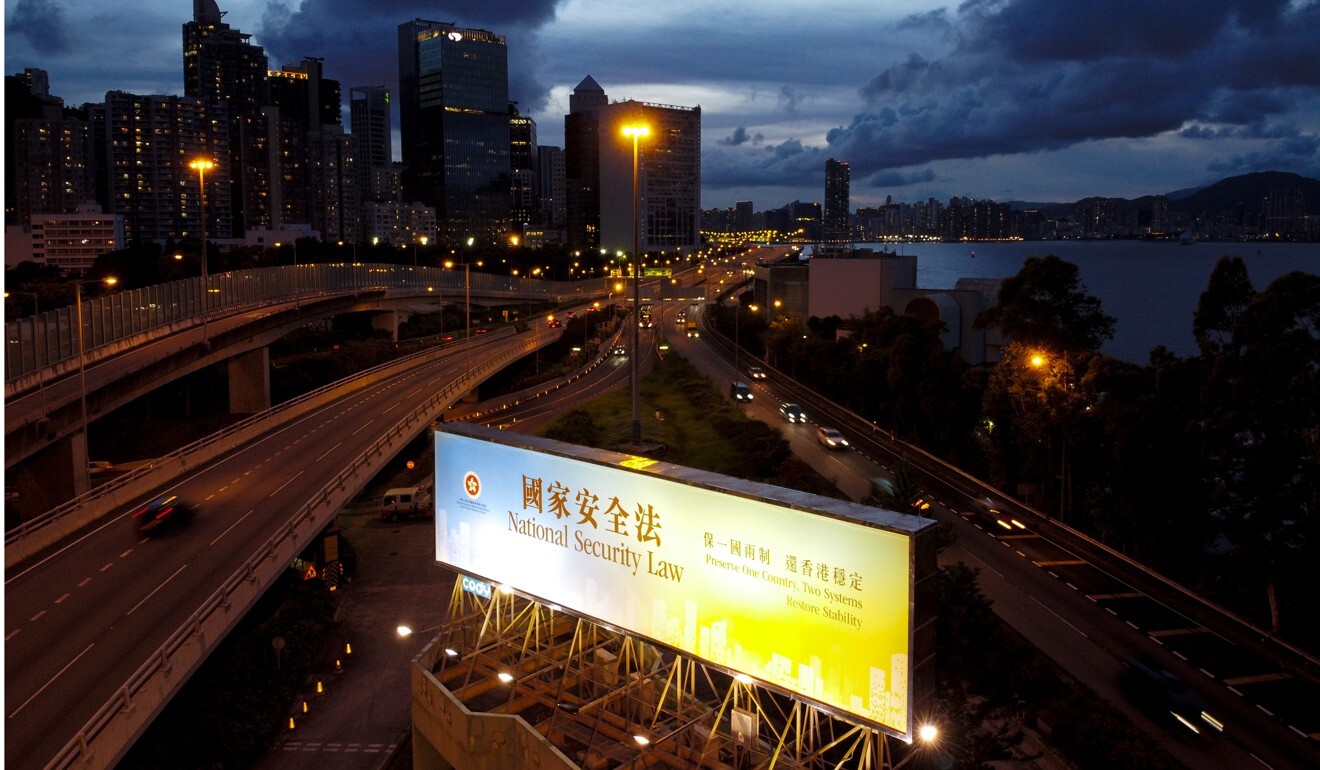
National security law: Hong Kong chamber says US sanctions source of ‘uncertainty’ that will only ‘exacerbate hardship’
- But local establishment figures, slamming the move as ‘unfair’ and ‘arrogant’, predict the targeted measures will have little real effect
- One outspoken businessman, however, suggests more officials have US assets than realised, says Carrie Lam and Leung Chun-ying likely to top sanctions list
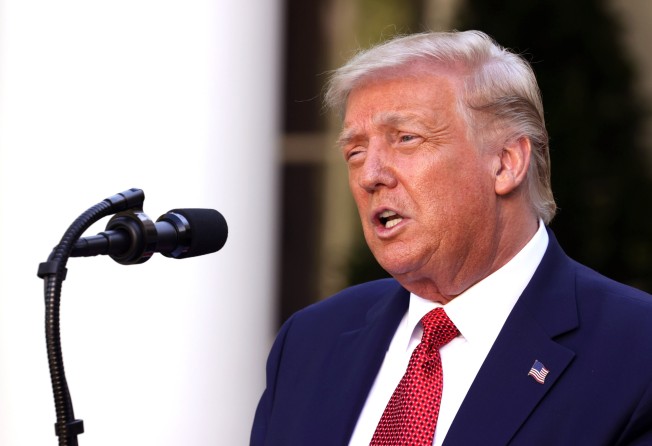
Hong Kong’s largest business group has warned the city’s position as a hub of global trade could be tarnished after US President Donald Trump’s Wednesday decision to strip it of its preferential treatment and sanction individuals and entities deemed to have helped erode its autonomy.
The Hong Kong General Chamber of Commerce, with about 4,000 corporate members, said the decision would cause more uncertainty and concerns for a city already in the midst of a recession exacerbated by the Covid-19 pandemic.

“It also creates uncertainty and concerns about what the US and its allies might do next,” the business group’s CEO George Leung Siu-kay said.
“We are disappointed with such retaliatory actions, which can only exacerbate the economic hardship of the Hong Kong people, rather than help them.”
In a tit-for-tat move following Beijing’s imposition of a sweeping national security law on Hong Kong last month, Trump signed an executive order terminating the preferential treatment the city has enjoyed since the handover from British to Chinese sovereignty in 1997.
We are disappointed with such retaliatory actions, which can only exacerbate the economic hardship of the Hong Kong people, rather than help them
In a statement issued late on Wednesday evening, the Hong Kong government said it strongly opposed the US executive order and sanctions on the city, vowing to facilitate China’s countermeasures.
The Hong Kong Autonomy Act not only threatens sanctions for government officials, but for foreign individuals and banks deemed to be contributing to the erosion of the city’s autonomy.
The city’s new national security law, enacted on June 30, outlaws secession, subversion, terrorism and collusion with a foreign country or external elements, and carries a maximum penalty of life imprisonment.
Trump said the act he signed into being would punish those who developed and implemented the law and block them from investing and transferring properties in the US. Targeted individuals and their immediate family members would also not be allowed to enter the country.
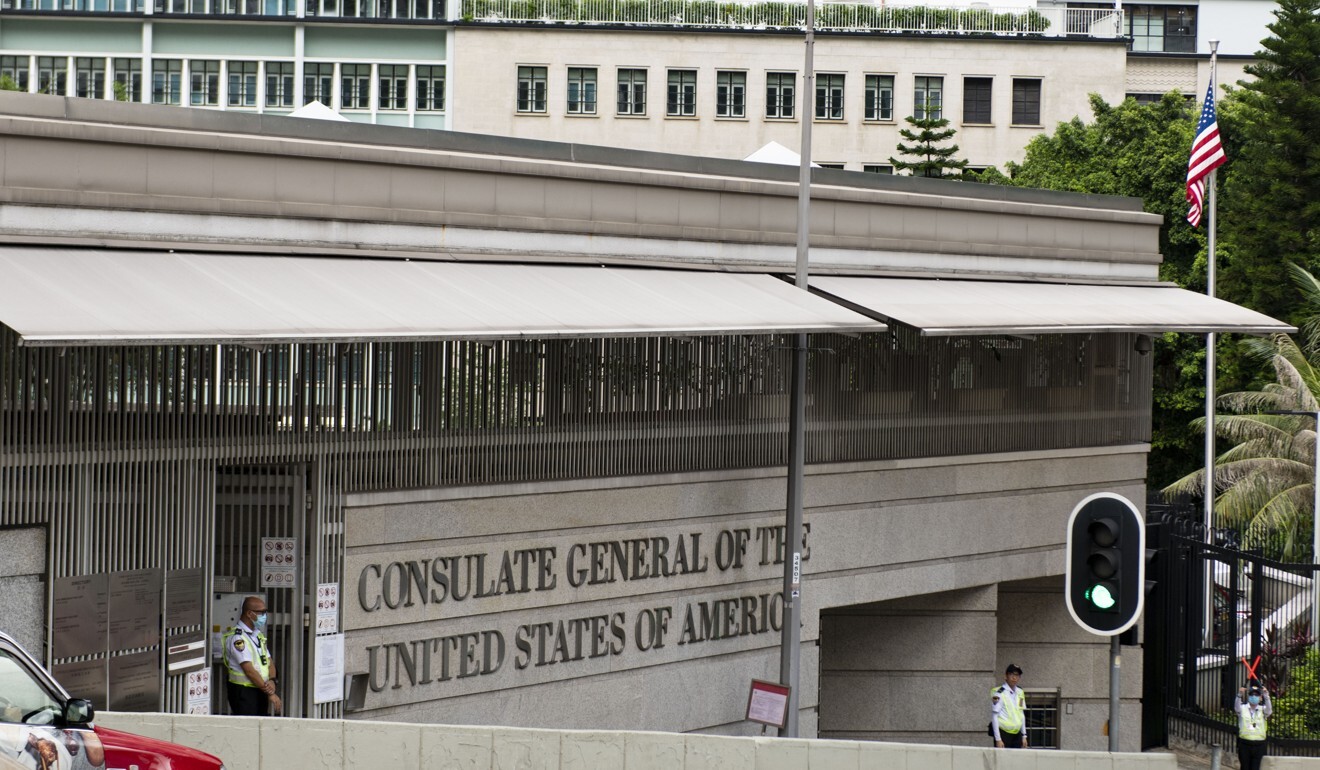
The move was blasted by a wide array of Hong Kong politicians and officials on Wednesday, including Secretary for Justice Teresa Cheng Yeuk-wah, who said any countries attempting to meddle in the domestic affairs of another country did so in defiance of accepted international standards.
Without naming the United States, Cheng said it was the legitimate right of any jurisdiction to ensure its authority on national security issues. “The central government will definitely continue to protect national security and its autonomy,” she said.
Former security minister Regina Ip Lau Suk-yee, a member of city leader Carrie Lam Cheng Yuet-ngor’s Executive Council, accused the US of being “arrogant and ridiculous”, saying the sanctions could unfairly pressure government officials.
“It’s unreasonable for the US to say that China ‘unilaterally and arbitrarily’ imposed the law on Hong Kong. They’re saying this to undermine the implementation of the law,” she said. “I believe there will be countermeasures from China.”
But she said the new restrictions, including the cancellation of 10-year visas for the US along with certain academic exchanges, would largely affect travellers and the education sector.
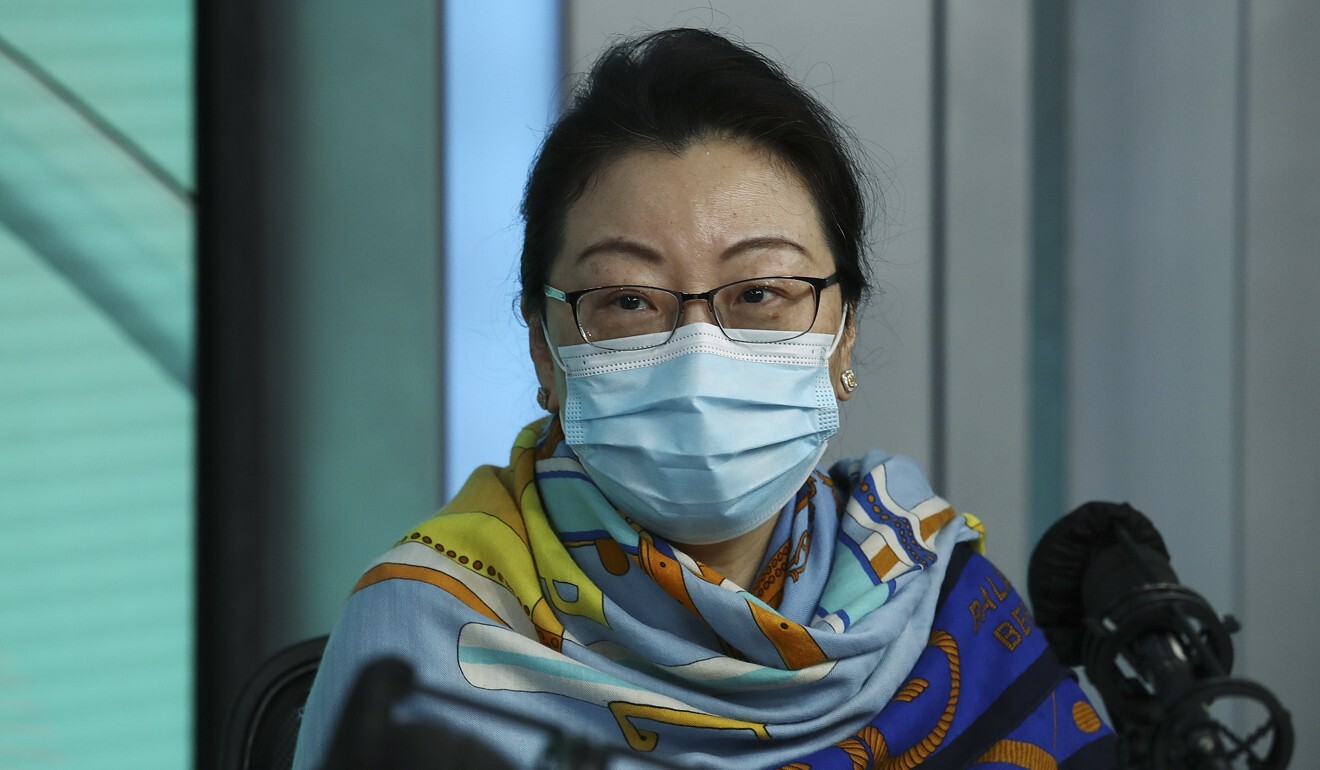
The city’s status as an international financial centre – and its currency peg to the US dollar, however, would not be undermined, she said, pointing to the sanctions’ targeted nature.
Banking giants HSBC and Standard Chartered Bank declined to comment on the executive order, as did the American Chamber of Commerce.
Asked whether the new measures had implications for herself, legislator Regina Ip said: “I don’t think legislators come within the scope of the sanctions, as they have no executive powers and the national security law was not enacted by Hong Kong legislators.”
Executive Council member and businessman Jeffrey Lam Kin-fung was also among those saying it was unfair to sanction Hong Kong officials for performing their duties, but, like Ip, he expected the impact to be minimal.
“My understanding is that the US sanctions only target government officials involved in the enforcement of the national security law, not businessmen,” he said.
“But as far as I know, local government officials don’t have too many assets in the US, so I think the impact will not be that great.”
That view was not held by outspoken businessman and Centaline Group founder Shih Wing-ching, who said he believed Lam and her predecessor, Leung Chun-ying, would likely be the first sanctioned under Trump’s executive order.
“They bear the biggest responsibilities for undermining Hong Kong’s autonomy. They should be sanctioned first,” he said.
Shih added he believed many officials and pro-Beijing lawmakers were holding assets in the US and could already be in the process of transferring them out of the country.
“I think the security minster and the police commissioner are among them. Other senior officials will need to decide whether they want to stay on with the government,” he said.
Joshua Wong Chi-fung, an activist who publicly lobbied Washington for sanctions against China, meanwhile, said the security law offered the US new tools to respond to Hong Kong’s repression.
“The passing of the national security law has led the international community to attempt to contain China. It’s time for Beijing to pull back before it’s too late,” he said. “Eroding Hong Kong’s freedom is not the way out. [Beijing’s] crackdown on Hong Kong will backfire.”
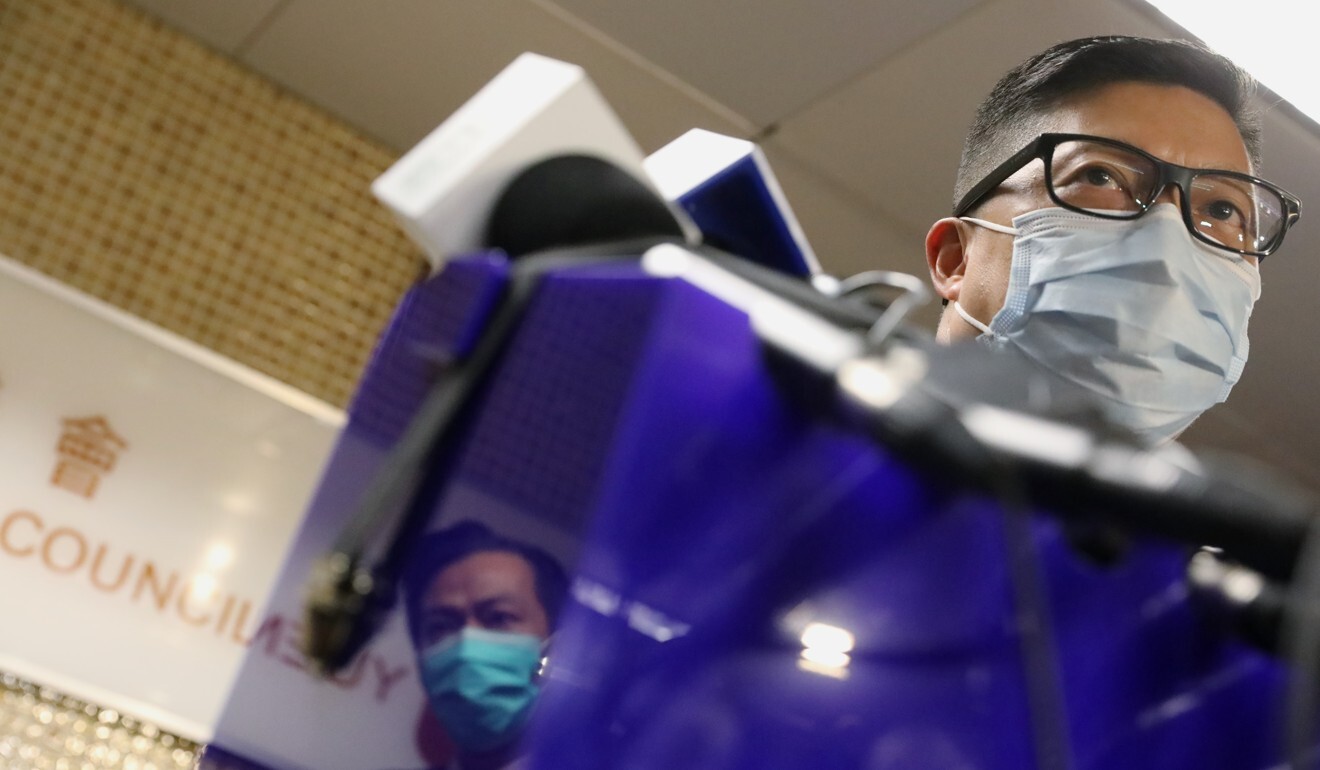
He also urged the US Congress to adopt the Hong Kong Safe Harbour Act, a bipartisan bill that would offer refugee status to Hongkongers at risk of persecution under the security law.
Another key part of the Hong Kong Autonomy Act will end the provision of training services to Hong Kong police force members and ban the sale of defensive weapons to the city.
But a senior police source insisted the restrictions would pose “minimal impact” as only a few officers were sent to the US each year for short visiting programmes – police chief Chris Tang Ping-keung once received training in the Federal Bureau of Investigation National Academy – and even those had been a while ago amid the tension between the States and China.
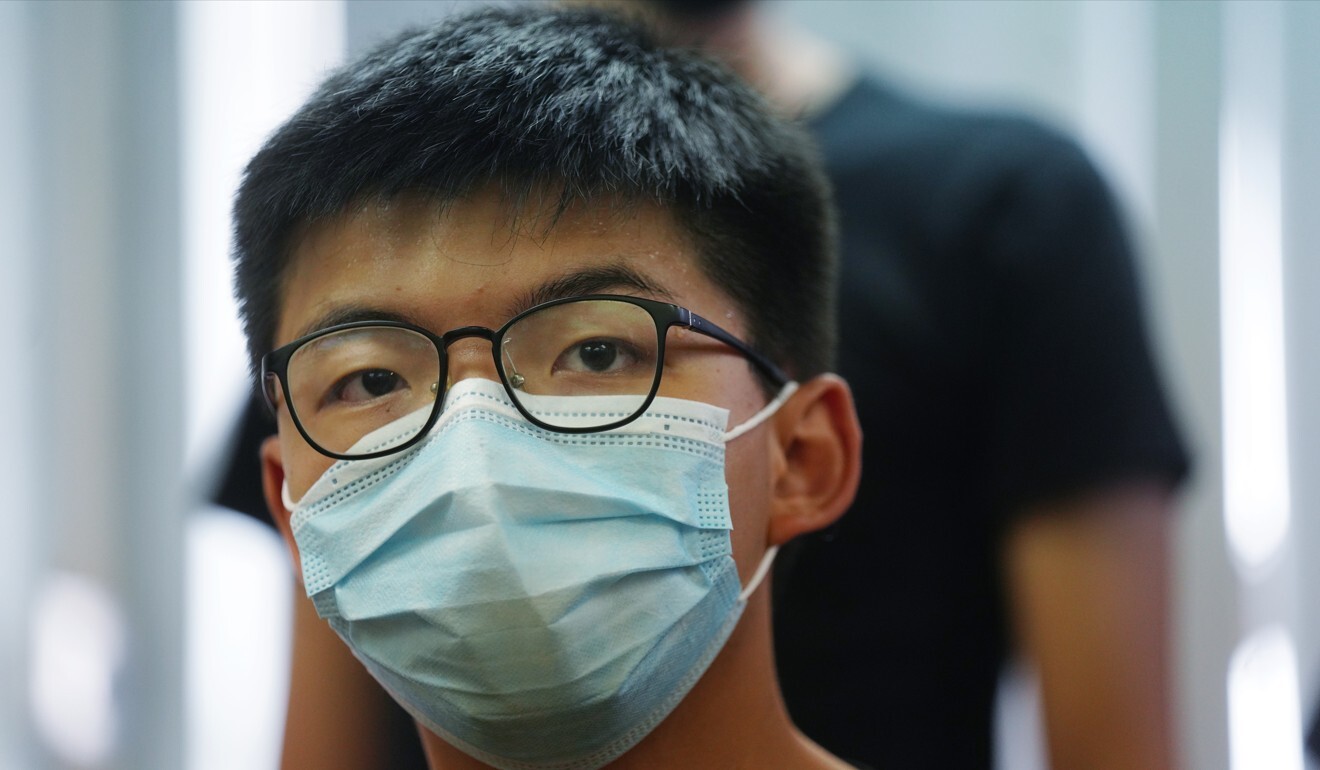
“The States think we will suffer, but seriously, it doesn’t hurt at all. It does not affect our performance, and we actually can still visit organisations of many other countries,” the insider said.
Speaking on the ban of the defensive items supply, the insider said the force did not solely rely on the Americans and that police’s current weapons were sourced from many other places, including China.
“It is not like the States providing us something so unique that we can’t find alternatives in the market.”
The Security Bureau also condemned the act, saying the weapons and equipment used by Hong Kong law enforcement agencies were similar to those used by their overseas counterparts.
It said the agencies procured different types of weapons and equipment from around the world and conducted market surveys and tests to ensure they met their safety standards and operational needs.
“Hong Kong law enforcement agencies will continue to follow the government’s established procurement procedures in procuring the required weapons and equipment,” the bureau said.
Lam Chi-wai, chairman of the Junior Police Officers’ Association, which represents 80 per cent of the 32,000-member force, said the act, which also suspends US’ extradition treaty with Hong Kong, went against the spirit of the rule of law, as the country itself would suffer.
“On top of that, I cannot recall any frequent training provided by the States. We regret [they] stopped exchange programmes with us, but I believe it will have a negligible impact,” Lam said.
According to the latest available figures, the Department of Justice received seven applications from the US between 2015 and 2018 for the surrender of fugitives. The city surrendered two during that period.